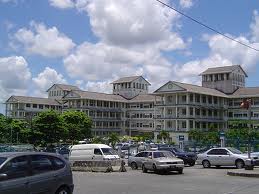The original article can be found in: Trinidad Newsday By Jada Loutoo
THREE APPELLATE judges have given the go-ahead to the husband of Chrystal Ramsoomair, to continue with his medical negligence claim against three doctors who treated his wife.
Chrystal died at the Maternity Ward of the San Fernando General Hospital (SFGH) in March, 2011, after a Caesarean section operation.
Presiding in a procedural appeal filed by the three medics, — Dr Mondira Seenath, resident house officer, Dr Deepawali Ramballack, house officer, and Dr Ashmeed Mohammed, senior medical officer — Chief Justice Ivor Archie and Justices of Appeal Nolan Bereaux and Maureen Rajnauth-Lee, yesterday dismissed the doctors’ appeal and upheld the January decision of Justice Frank Seepersad.
Seepersad had ruled against the doctors’ application to have Lorne Ramsoomair’s claim against them struck out. At yesterday’s hearing, Israel Khan, SC, who represented Ramsoomair, said the issue was not about the money, but that his client deserved to know what caused his wife’s death. According to the doctors, the SWRHA had accepted liability for Chrystal’s death. According to the arguments advanced before the judge, the SWRHA’s acceptance of liability was based on organisational failure, and did not include the actions of the doctors.
Ramsoomair’s case was premised on the actions of the doctors, who denied liability, and he refused to withdraw his claim against them. Chrystal, 29, bled to death at SFGH on March 4, 2011, on the Maternity Ward after an alleged botched delivery. Her baby, Danielle, was born healthy, but doctors could not stop her mother from bleeding. Relatives claimed two arteries were mistakenly cut during delivery, and doctors, despite a series of emergency procedures, never knew the source of the blood, until the autopsy.
An independent investigation was also ordered by the Health Ministry into Chrystal’s death. The doctors, represented by Jagdeo Singh, had argued that Seepersad’s ruling was flawed.
According to the doctors, the SWRHA had admitted liability due to the fact that it failed to provide proper medical and ancillary services to Chrystal. They insisted they were not negligent, and did not breach their duty of care. They said to pursue them in the claim would amount to an abuse of process. It was also pointed out that the authority denied the doctors were negligent, and that there was only one course of action, and that was against the SWRHA as they were not independent contractors of the authority.
As a result of the SWRHA’s admission of negligence, judgment was registered against it, and damages ordered to be assessed.Khan had argued that judgment against the authority was premised on its acceptance of “organisation failures” but that the negligence of the doctors, or their professional negligence, was an entirely different matter.
In his ruling, Seepersad noted a determination as to whether the doctors were negligent as alleged, would require a clear, concise and comprehensive assessment of all the facts, and a judicial determination as to the events that led to, and caused Chrystal’s death. He said the resolution of the issue as it related to the doctors “may be of greater importance and value” to Ramsoomair than any monetary award. He held that the pleadings against the SWRHA outlined aspects of organisational failures and had no correlation to the particulars of breach of professional obligation, duty of care and assertions of negligence, as advanced against the doctors.
“The admission of liability by the first defendant (the SWRHA) was indeed commendable, but does not, in my view, obviate the need for the court to hear the facts, and adjudicate as to whether the second, third and fourth defendants (the doctors) were negligent, and whether they failed to extend to the deceased, duty of care that was to be expected from reasonable medical practitioners,” the judge said.
The appellate judges, in an oral ruling, said they could find no fault with the judge’s reasons for dismissing the medics’ application for the claim against them to be struck out.
The judges also held that there was no authority supporting the claim that the continuation of litigation was an abuse of process, adding that the issue of medical negligence remained a live one.
![]()














